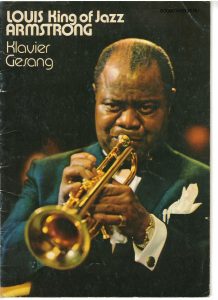Table of Contents
Come join us now, and enjoy playing your beloved music and browse through great scores of every level and styles!
Can’t find the songbook you’re looking for? Please, email us at: sheetmusiclibrarypdf@gmail.com We’d like to help you!
Ella Fitzgerald Louis Armstrong – Gershwin: Summertime

Summertime by Gershwin
Browse in the Library:
Or browse in the categories menus & download the Library Catalog PDF:
“Summertime” is an aria composed in 1934 by George Gershwin for the 1935 opera Porgy and Bess. The lyrics are by DuBose Heyward, the author of the novel Porgy on which the opera was based, although the song is also co-credited to Ira Gershwin by ASCAP.
Please, subscribe to our Library.
If you are already a subscriber, please, check our NEW SCORES’ page every month for new sheet music. THANK YOU!
The song soon became a popular and much-recorded jazz standard, described as “without doubt … one of the finest songs the composer ever wrote … Gershwin’s highly evocative writing brilliantly mixes elements of jazz and the song styles of blacks in the southeast United States from the early twentieth century”. Composer and lyricist Stephen Sondheim has characterized Heyward’s lyrics for “Summertime” and “My Man’s Gone Now” as “the best lyrics in the musical theater”.
Porgy and Bess
Gershwin began composing the song in December 1933, attempting to create his own spiritual in the style of the African American folk music of the period. Gershwin had completed setting DuBose Heyward’s poem to music by February 1934, and spent the next 20 months completing and orchestrating the score of the opera.
The song is sung several times throughout Porgy and Bess. Its lyrics are the first words heard in act 1 of the opera, following the communal “wa-do-wa”. It is sung by Clara as a lullaby. The song theme is reprised soon after as counterpoint to the craps game scene, in act 2 in a reprise by Clara, and in act 3 by Bess, singing to Clara’s now-orphaned baby after both its parents died in the storm. It was recorded for the first time by Abbie Mitchell on July 19, 1935, with George Gershwin playing the piano and conducting the orchestra (on: George Gershwin Conducts Excerpts from Porgy & Bess, Mark 56 667).
The 1959 movie version of the musical featured Loulie Jean Norman singing the song. That rendition finished at #52 in AFI’s 100 Years…100 Songs survey of top tunes in American cinema.
Lyrics
Heyward’s inspiration for the lyrics was the southern folk spiritual-lullaby “All My Trials“, of which he had Clara sing a snippet in his play Porgy.[7][8] The lyrics have been highly praised by Stephen Sondheim. Writing of the opening line, he says:
That “and” is worth a great deal of attention. I would write “Summertime when” but that “and” sets up a tone, a whole poetic tone, not to mention a whole kind of diction that is going to be used in the play; an informal, uneducated diction and a stream of consciousness, as in many of the songs like “My Man’s Gone Now”. It’s the exact right word, and that word is worth its weight in gold. “Summertime when the livin’ is easy” is a boring line compared to “Summertime and”. The choices of “ands” [and] “buts” become almost traumatic as you are writing a lyric – or should, anyway – because each one weighs so much.
Music
Musicologist K. J. McElrath wrote of the song:
Gershwin was remarkably successful in his intent to have this sound like a folk song. This is reinforced by his extensive use of the pentatonic scale (C–D–E–G–A) in the context of the A minor tonality and a slow-moving harmonic progression that suggests a “blues“. Because of these factors, this tune has been a favorite of jazz performers for decades and can be done in a variety of tempos and styles.
While in his own description, Gershwin did not use any previously composed spirituals in his opera, Summertime is often considered an adaptation of the African American spiritual “Sometimes I Feel Like a Motherless Child“, which ended the play version of Porgy.Alternatively, the song has been proposed as an amalgamation of that spiritual and the Ukrainian Yiddish lullaby Pipi-pipipee.The Ukrainian-Canadian composer and singer Alexis Kochan has suggested that some part of Gershwin’s inspiration may have come from having heard the Ukrainian lullaby “Oi Khodyt Son Kolo Vikon” (“A Dream Passes by the Windows”) at a New York City performance by Alexander Koshetz‘s Ukrainian National Chorus in 1929 (or 1926).
Other versions
Statistics for the number of recordings of “Summertime” vary by source; while older data is restricted to commercial releases, newer sources may include versions self-published online. The Jazz Discography in 2005 listed 1,161 official releases, ranking the song fourth among jazz standards.Joe Nocera in 2012 said there were “over 25,000” recordings.
Guinness World Records lists the website’s 2017 figure of 67,591 as the world record total.
Come join us now, and enjoy playing your beloved music and browse through great scores of every level and styles!
Can’t find the songbook you’re looking for? Please, email us at: sheetmusiclibrarypdf@gmail.com We’d like to help you!
